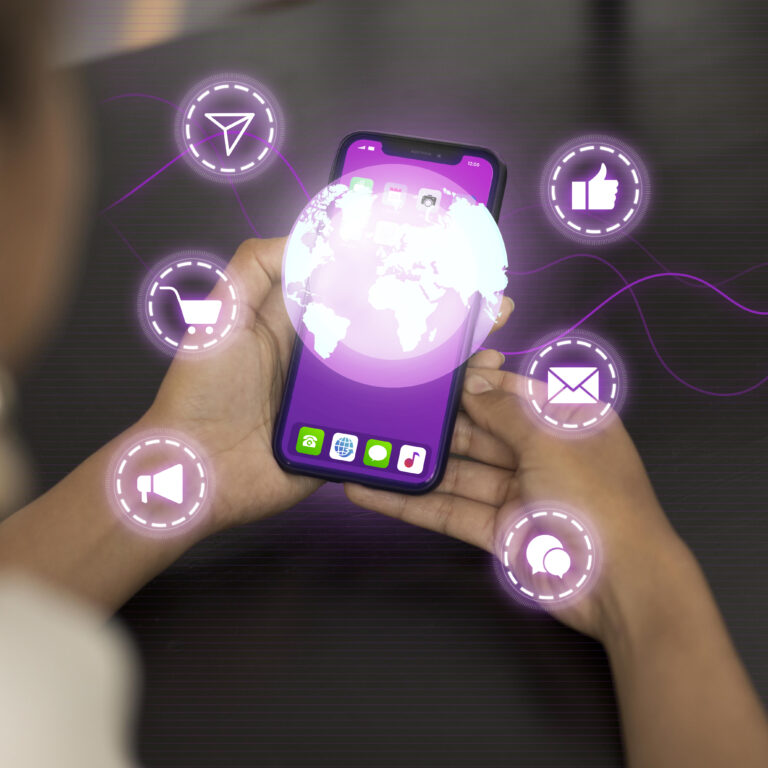
Every year, technology surprises us with new innovations, and 2024 stands out with advancements that push the boundaries of what we thought was possible. As we navigate an increasingly connected world, these technologies emerge not just as tools, but as true drivers of change for our society. If you’re wondering which innovations have marked this remarkable year, fasten your seatbelt, because Transfergratis is taking you on a journey to explore the technological trends of 2024.
I - In the field of cybersecurity
Cybersecurity has become a major priority in 2024, mainly due to the rapid evolution of technologies and the rising threats to computer systems. As digital tools and platforms modernize, cyberattacks such as ransomware and data breaches are becoming more sophisticated and frequent. Solutions like artificial intelligence for threat detection, post-quantum encryption, and the Zero Trust model have been implemented to counter these threats.
Companies that integrate cybersecurity from the design phase often avoid data breaches. This is true for Transfergratis, which ensures secure transactions from Canada to Africa. Its robust security measures allow users to send funds with peace of mind, knowing their personal and financial data is safe, while transactions remain free, fast, and at the current exchange rate.
However, cybersecurity is just the first step. With the advent of Web3, the decentralization of the internet is changing how users interact with online platforms.
II - The Web 3: An evolution towards a decentralized internet.
Web3, or Web 3.0, is revolutionizing the internet. Unlike Web 2.0, which is dominated by social media and major corporations controlling our data, Web3 focuses on decentralization. This means that information and applications are distributed across a network of computers instead of being controlled by a single entity. At the core of this shift is blockchain technology, ensuring data security and transparency. Web3 aims to enhance user trust by giving individuals direct control over their data and transactions without needing centralized intermediaries.
This transition to a decentralized internet also impacts financial platforms like Transfergratis, as this new technology makes transactions even faster and more secure for users.
Major innovations in Web3 this year include smart contracts and NFTs (non-fungible tokens). Smart contracts are self-executing programs on the blockchain, facilitating secure transactions without intermediaries, while NFTs enable artists and creators to uniquely monetize their digital works, making each creation verifiable and tradable.
As Web3 decentralizes the internet, artificial intelligence (AI) enhances creation and automation capabilities, transforming not only the internet but also how businesses interact with their customers.
III - Generative artificial intelligences
In 2024, generative AI has taken on a new dimension by facilitating content creation and automating complex processes.
Since the beginning of the year, these advanced technologies have been used for various applications, such as writing articles, designing images, and composing music, enabling companies to produce content more quickly and efficiently. In fields like architecture and design, generative AI also simplifies the design process by creating 3D models.
Companies that integrate these technologies benefit from significant time savings; by automating repetitive and time-consuming tasks, they can focus on more strategic and creative activities, such as developing new products or improving customer service. Furthermore, for developers, integrating AI models into applications has become a common practice. This is the case for WhatsApp and Messenger, which have recently incorporated AI into their features, enhancing user experience with innovative and personalized options. Platforms like Transfergratis could also integrate AI, such as a chatbot, to enrich user experience in customer support.
While artificial intelligence generates increasingly personalized and rapid content, 6G promises to revolutionize connectivity. But how will this impact financial services on a global scale?
IV - 6G: An internet faster than ever

As 5G begins to gain traction, 6G is already making its mark on the global tech scene. With even faster connection speeds, near-zero latency, and exponentially increased connectivity capacity, 6G could radically transform access to digital services, including financial services like Transfergratis. For Africa, the impact could be significant, providing broader and faster access to online services, even in remote areas, making financial services accessible to all.
Although 6G is not yet available in Africa, initial trials are mainly happening in developed countries like the U.S., China, and parts of Europe. However, discussions are emerging about implementing 6G in Africa and its potential impact on the continent, highlighting the importance of improving existing infrastructure and investing in the necessary technologies.
In 2024, the technological landscape is transforming at a breakneck pace, with innovations redefining our daily lives and paving the way for a promising future. From the rise of 6G to advances in cybersecurity and the integration of artificial intelligence into our favorite applications, each new development offers exciting possibilities.
Don’t forget to enable notifications on the blog to stay updated on the latest technological advancements. And if you’re looking for a practical and cost-effective app to make transactions from Canada to Africa, download Transfergratis. It’s fast, secure, and above all, free!







